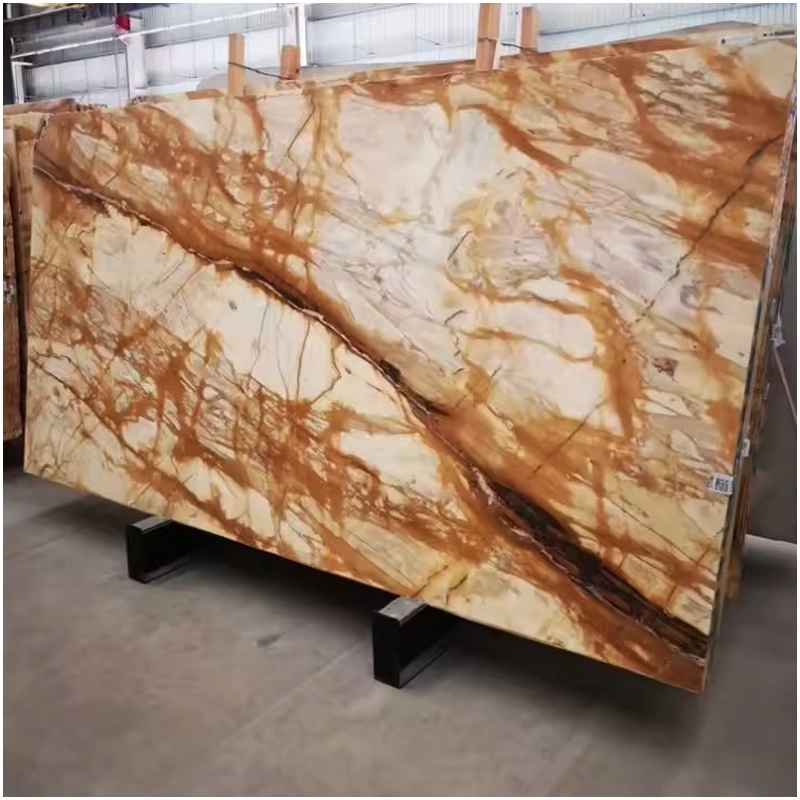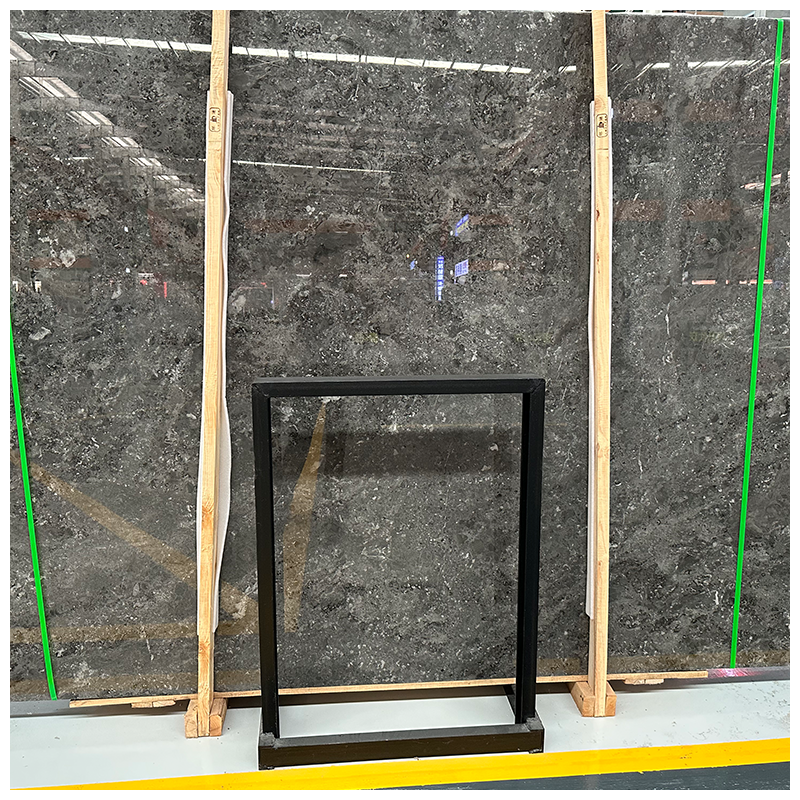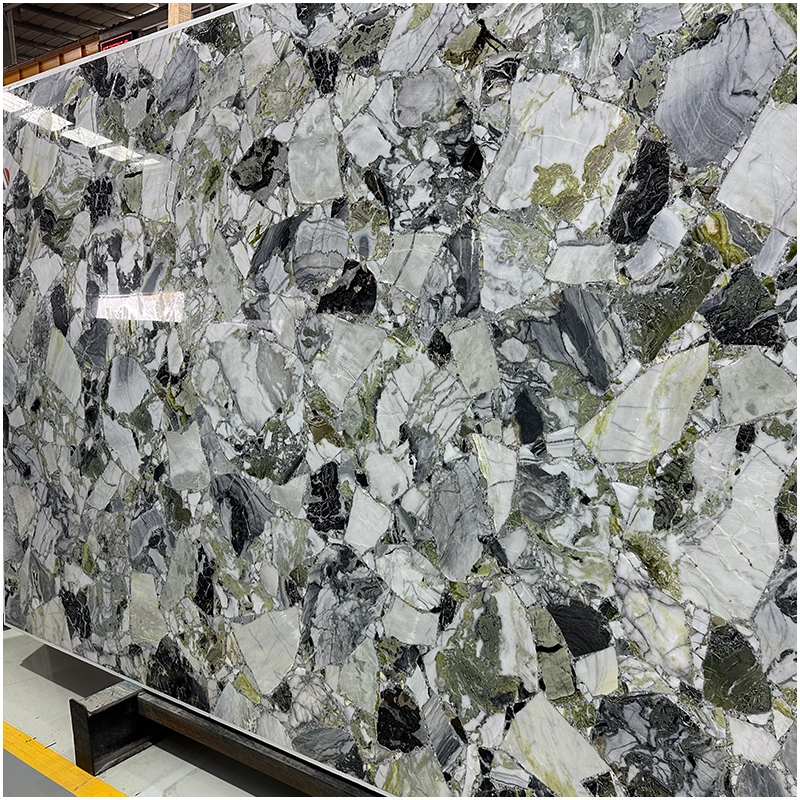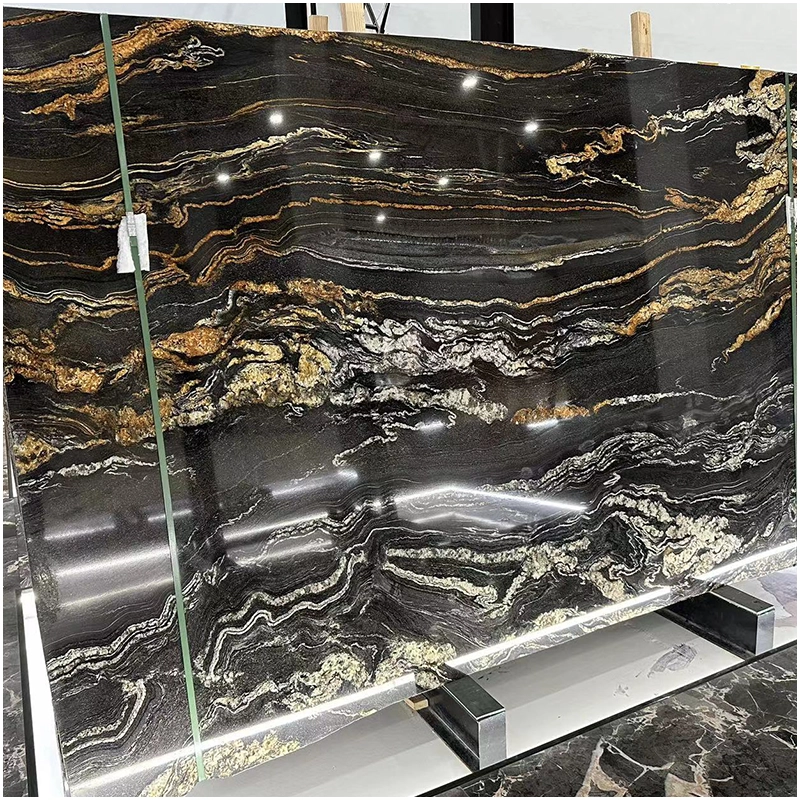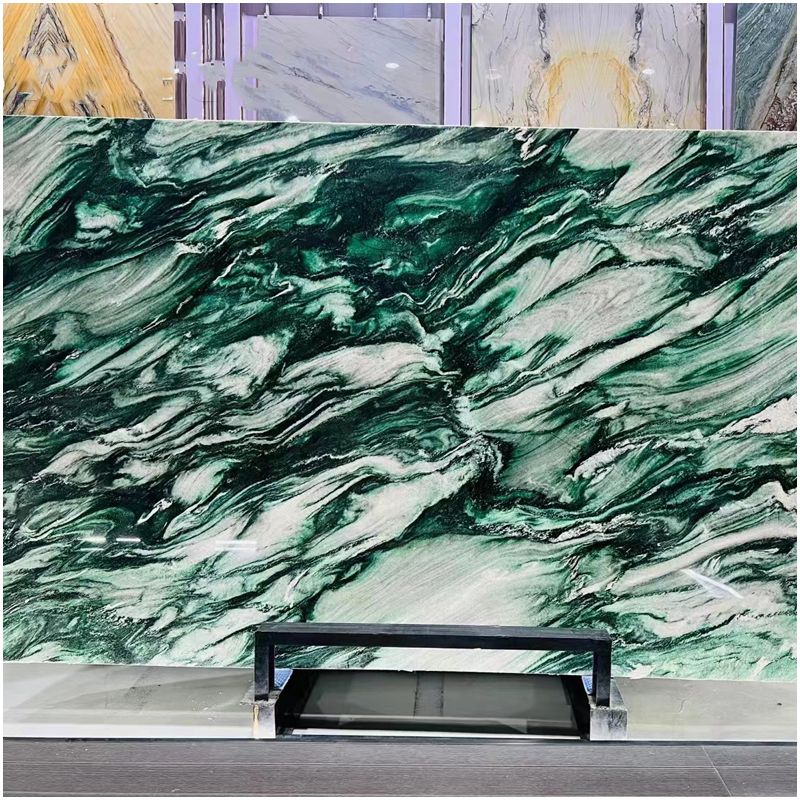Black Marble Slabs: A Guide to Quality Identification and Application
Black marble is a widely sought-after stone for both interior and exterior design due in great part to its rich, deep tones and dramatic veins. Popular for its elegance and classic beauty, black marble is used in a range of projects including outdoor décor and kitchen counters. To guarantee its lifetime and performance, however, choosing premium black marble and knowing its properties and care needs is very crucial.
Let us investigate the characteristics of black marble slabs, their fit for kitchen counters, performance in outdoor surroundings, maintenance techniques, and temperature change sensitivity. As a competent stone supplier, Foru offers knowledge on how to maximize the advantages of black marble slabs while preserving their beautiful look.
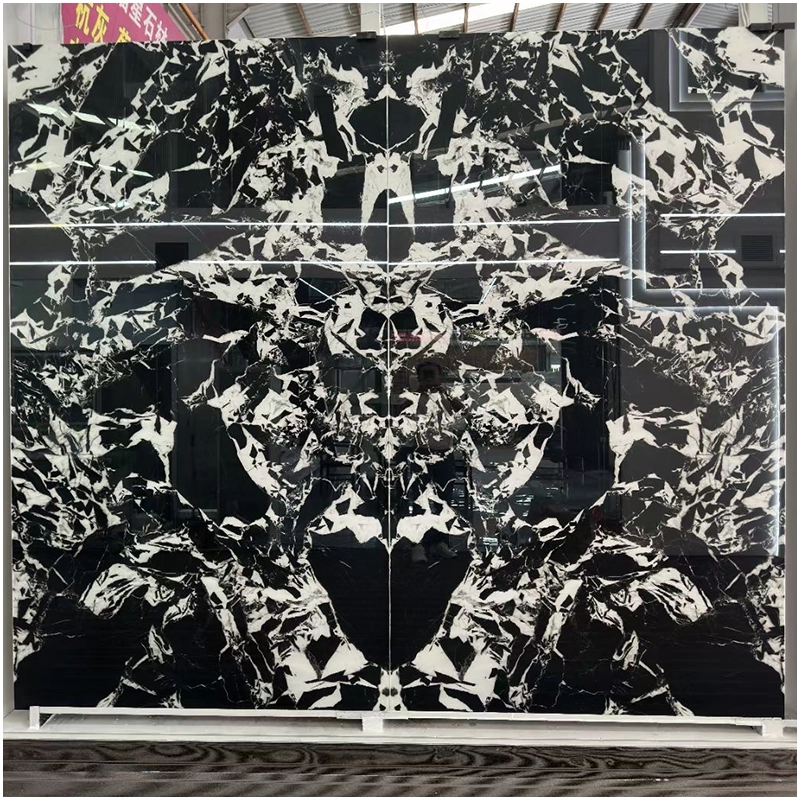
How might one determine the black marble slab’s quality?
Several important characteristics help to define the quality of black marble slabs. Excellent black marble should have a uniform hue and pattern with few variances in tone and veins. As these flaws could compromise the marble’s longevity and appeal, the surface should be smooth and devoid of obvious fissures, fractures, or big pores. Foru advises looking at marble slabs under many lighting sources to guarantee consistency and draw attention to any flaws that may not be apparent under natural light.
The weight and density of black marble help one to ascertain its quality. Higher density denotes greater quality as denser marble is less prone to absorb stains and moisture. One may do a basic experiment by dropping a drop of water on the marble’s surface and timing its absorption. Excellent marble will resist absorption, thereby suggesting high density and sealing properties.
Is black marble suitable for kitchen countertops?
Stunning kitchen counters made from black marble slabs provide a sophisticated and beautiful appearance that accentuates the whole design of the kitchen. Black marble’s rich, dark hue contrasts with light-colored cabinetry and fittings to create a visual center in the kitchen. Black marble’s suitability for usage as a kitchen countertop, however, relies on various criteria including durability and care needs.
Although black marble is usually more scratch- and stain-resistant than lighter-colored stones, it still has to be routinely treated to maintain its resistance to spills and stains. Acidic materials such lemon juice, vinegar, and certain cleaning agents may erode black marble’s surface and produce dull areas and luster loss. To protect the marble from direct touch with hot pots and sharp items, Foru advises using a cutting board and trivet.
How does black marble slab perform in outdoor decoration?
Black marble slabs’ opulence and durability are driving their rising popularity in outdoor décor. Black marble may accentuate the elegance of patios, garden walkways and facades used in outdoor environments, therefore producing a sophisticated and classic appearance. But black marble’s performance in outdoor uses relies on variables like upkeep and weather conditions.
Over time, black marble’s color and polish may change with temperature swings, rain, and sunshine. Marble may fade from UV radiation; fluctuations in humidity and temperature may cause fissures and fractures to develop. Foru stresses the need of choosing premium, weather-resistant black marble and using the suitable sealers to shield the stone from surroundings. Maintaining the look and integrity of black marble in outdoor environments depends on regular care including cleaning and reseeling.
How to maintain and care for black marble slabs?
Black marble slabs’ longevity and beauty depend on proper maintenance and upkeep. Frequent washing with a soft cloth and a moderate, non-acidic detergent helps eliminate debris and prevents grime from building up, thereby dulling the surface of marble. A paste composed of baking soda and water may be used to more tough stains without compromising the marble. One should refrain from utilizing equipment or abrasive cleansers that might damage the surface of the marble.
Apart from frequent washing, black marble slabs should be sealed often to improve their resistance against moisture and stains. Degree of use and environmental element exposure determines the frequency of sealing. Foru advises seeing a specialist to decide on the suitable sealers and treatments for your particular kind of black marble.
Does black marble slab alter with temperature?
Like all natural stones, black marble slabs fluctuate with the temperature. Temperature swings may cause marble to expand and shrink, which would create fissures and fractures. In outdoor uses where black marble is subject to the environment, this is particularly crucial. Temperature variations in interior settings from hot pots and pans may also compromise marble integrity.
Using protective devices like coasters and trivets helps to reduce direct contact with hot items, therefore mitigating the impact of temperature fluctuations. Selecting a premium, weather-resistant black marble and using the suitable sealer can help lower the danger of damage from temperature changes in outdoor uses. Aware of the possible consequences of temperature variations on black marble, homeowners act early to guard the stone from harm.
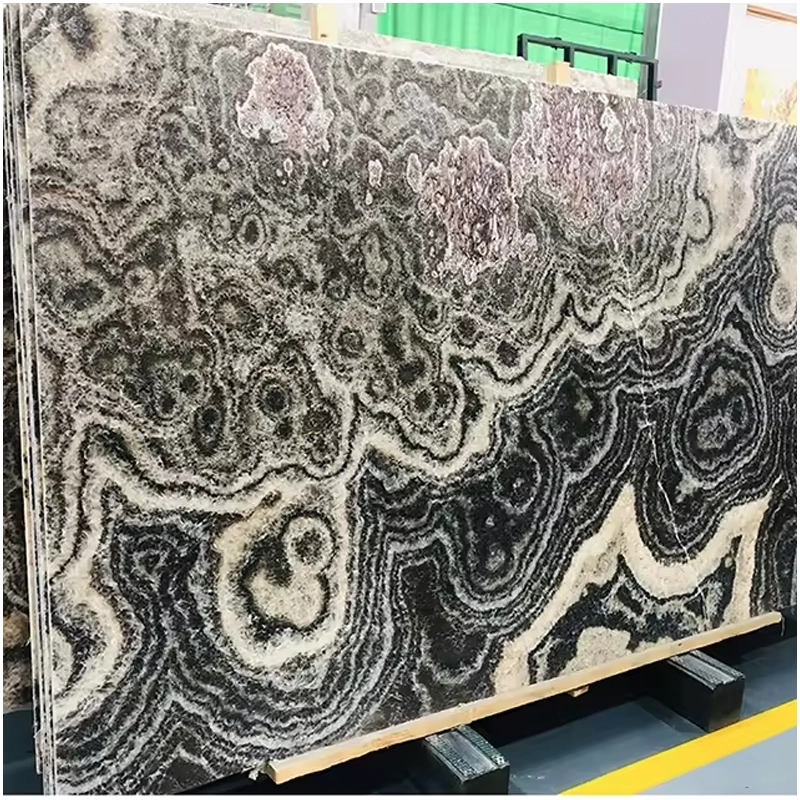
Black marble slabs are a great option for many uses in home design as they mix elegance, durability, and adaptability. Foru stresses the need of choosing premium black marble and knowing its features in order to get the most advantages.
From choosing quality indicators and assessing fit for kitchen counters to assessing performance in outdoor settings and applying suitable care, homeowners can make sure black marble surfaces stay lovely and useful for years to come. With its expert goods and services, Foru will keep giving clients premium black marble slabs to satisfy their quest of excellence in daily life.

